Everything you need to know about
Yorkshire Terriers
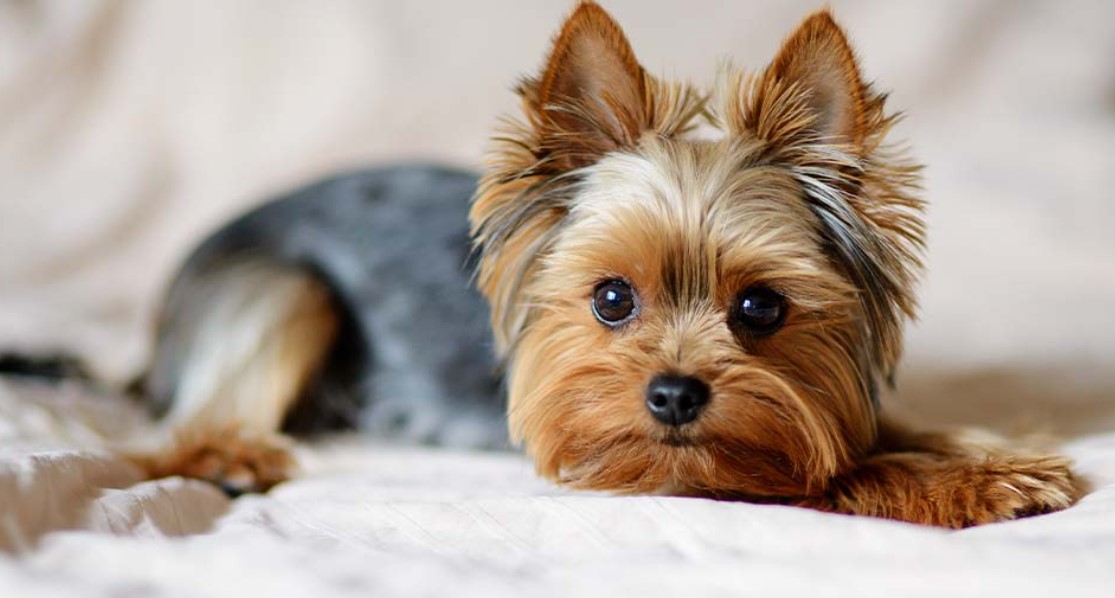
The Yorkshire Terrier is a British breed of toy dog of terrier type. It is among the smallest of the terriers and indeed of all dog breeds, with a weight of no more than 3.2 kg/7 pounds. It originated in the nineteenth century in the English county of Yorkshire, for which it is named. Their coats are typically tan on the head with a dark steel-grey body, but they can come in a variety of colors. It is a playful and energetic dog, usually kept as a companion dog. It has contributed to the development of other breeds including the Silky Terrier, and also to cross-breeds such as the Yorkipoo.
Key Stats
| Height | 20-23cm |
|---|---|
| Weight | 1.8-3.2kg |
| Size | Small (Toy) |
| Lifespan | 12-15 years |
| Coat | Long, straight, silky |
| Exercise | 30-40 minutes daily |
| Grooming | daily or weekly |
| Temper | Bold, independent, lively |
Breed History
Although their long, silky fur gives them a regal appearance, Yorkshire Terriers were not aristocratic companions. These little dogs were bred to be rat catchers and were often found working in the mills across Yorkshire. Miners would also take these tiny dogs with them into coal mines, carrying them down in a bag or their pocket so the terrier could catch mice and rats down in the pit.

Yorkshire Terrier colours
Yorkshire Terriers come in a very limited range of colours, and they almost always have a tan face and legs, with a dark blue or black “saddle” marking on their back. Most Yorkshire Terrier puppies are born with black and tan coats. As your Yorkie gets older, their coat will probably get lighter and become a blue and gold colour.
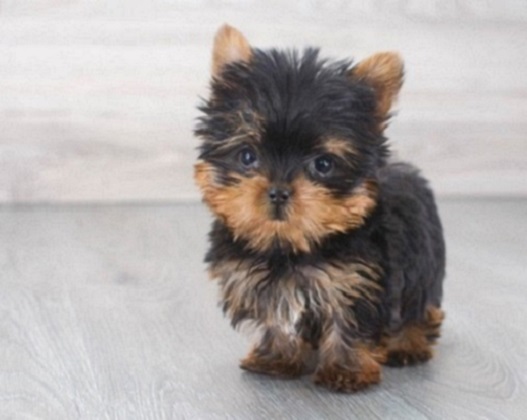
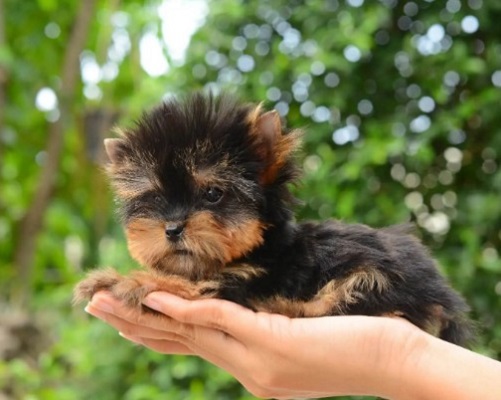
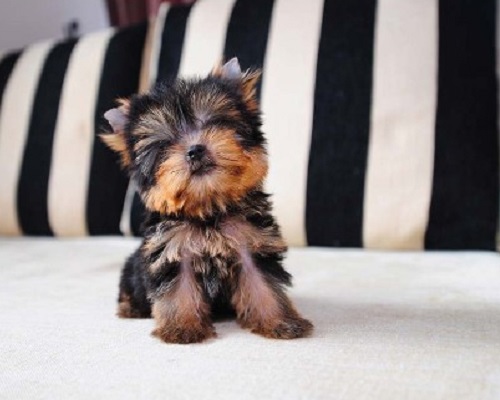
Yorkshire Terrier temperament
Although they often look dainty and distinguished, Yorkshire Terriers still have a feisty terrier personality. The typical Yorkshire Terrier temperament is spirited and energetic, and they’re often described as a big dog in a little dog’s body. Despite their bold streak, Yorkshire Terriers are a loving and affectionate breed and will happily lap any attention you give them. Although they have become a lapdog in recent years, some Yorkshire Terriers still have traits of a working dog. They can have a high prey drive and might chase small animals. They’re also very alert and tend to bark at anything unusual.
How much exercise do Yorkshire Terriers need?
Yorkshire Terriers have a lot of energy so they need at least one brisk walk every day. However, they are only small, so they don’t need to be taken trekking to wear them out. You should expect to give your Yorkshire Terrier at least 30 to 45 minutes of walkies every day, and hopefully some playtime and enrichment too.
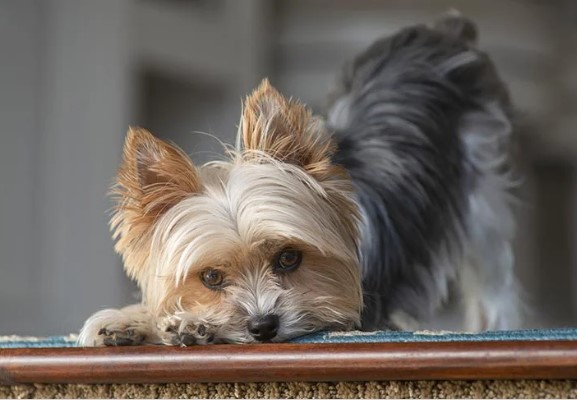
How to groom a Yorkshire Terrier
Yorkshire Terrier grooming can be quite intense depending on their coat. Because their fur is naturally long and silky, it can tangle like human hair does. If your Yorkie has long fur, you will need to brush it once a day to make sure it doesn’t get knotted or matted.
When a Yorkshire Terrier’s fur is clipped short, it doesn’t need as much brushing, and you can brush it every few days instead. If you do keep your Yorkshire Terrier’s clipped short, it will need less brushing, but more visits to the groomer. You’ll need to have their fur trimmed roughly every 6 weeks.
As for baths, you only need to wash your pooch whenever they’re visibly dirty or smelly. Just remember to brush them before bathing them to prevent their fur from getting tangled.
As well as brushing and trimming your Yorkie’s fur, you’ll need to trim their claws every month to prevent them from overgrowing. You should also brush their teeth regularly, ideally once a day, to get rid of bacteria and plaque and prevent dental disease
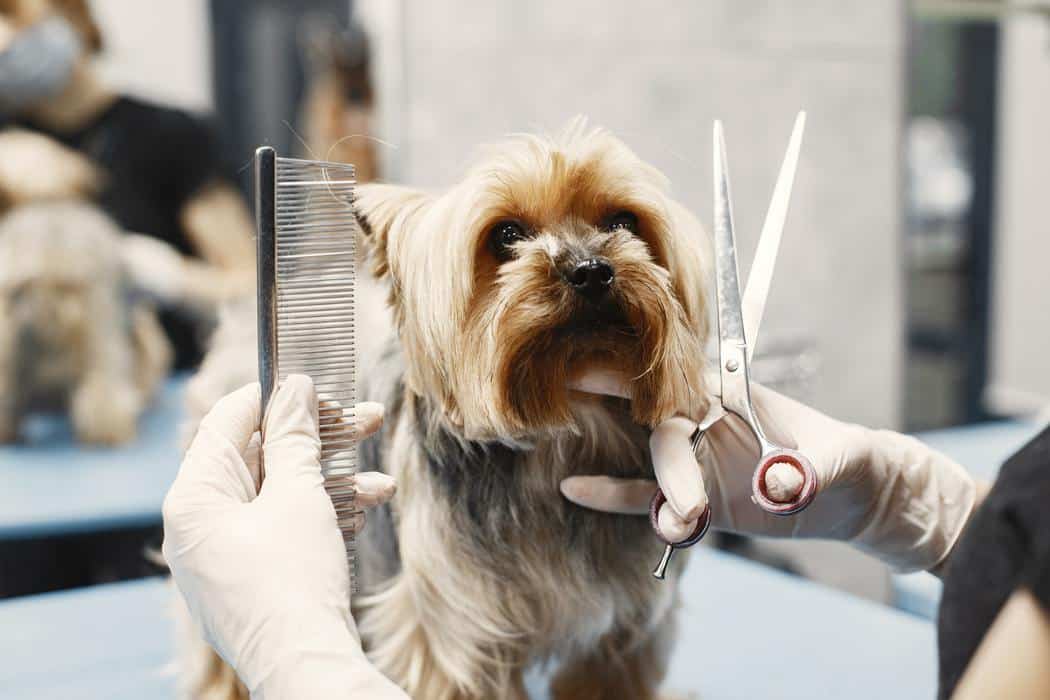
Yorkshire Terrier lifespan
Yorkshire Terriers are one of the longest living dog breeds, with an average lifespan of 12-15 years. However, individual dogs have been known to reach their late teens!
To help your dog live as long and healthy a life as possible, remember to provide them with a complete diet, daily exercise, and regular veterinary care.
Common Yorkshire Terrier health problems
Allergies Yorkshire Terriers are prone to skin and dietary allergies, which often manifest as itchy skin and recurring ear infections. You may need to pay for testing to identify and treat the cause of your pup’s irritation. Additionally, they are known to develop new allergies as they age. Common allergens that trigger skin reactions in Yorkies include dust, mold, pollen, fleas, and detergents.
Eye problems Yorkshire Terriers are vulnerable to a few eye problems including dry eye and cataracts. Occasionally, they might inherit conditions including lens luxation or progressive retinal atrophy. Cataracts and lens luxation require surgery to prevent vision loss. Meanwhile, progressive retinal atrophy has no cure and causes vision loss that may lead to blindness.
Dental issues are some of the most common Yorkshire Terrier health problems. This is because their jaws are small, making them prone to overcrowding and vulnerable to dental disease Regularly cleaning your dog’s teeth and annual dental checks with the vet will help to protect your pooch’s pearly whites.
Luxating patella is a condition where a dog’s kneecap moves out of place. Sometimes it pops back into place on its own, other times physiotherapy or surgery is required to correct the joint. It’s common in most small breeds of dog, including the Yorkshire Terrier.
